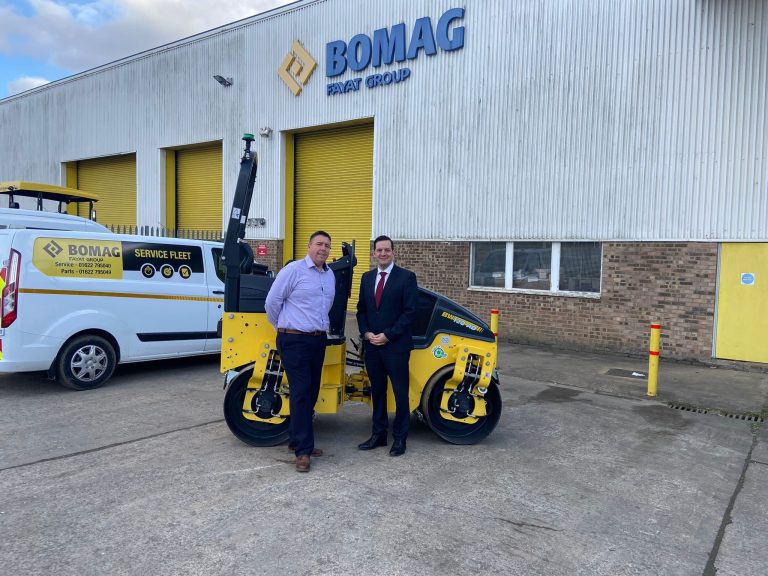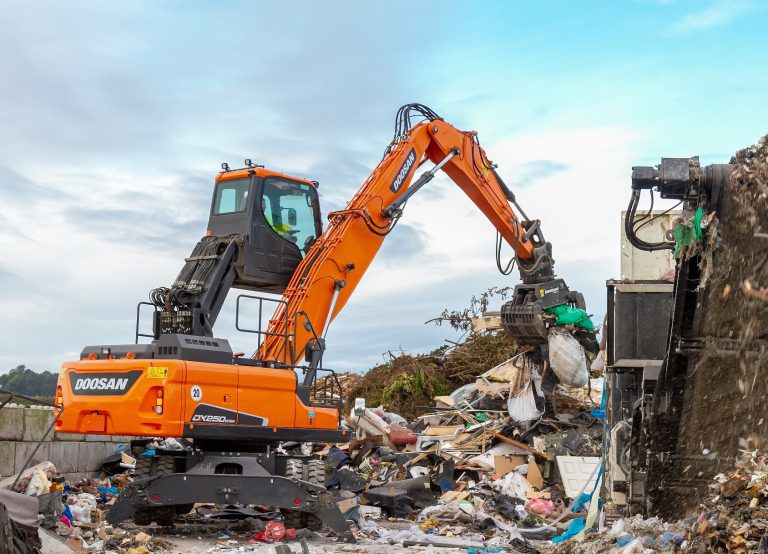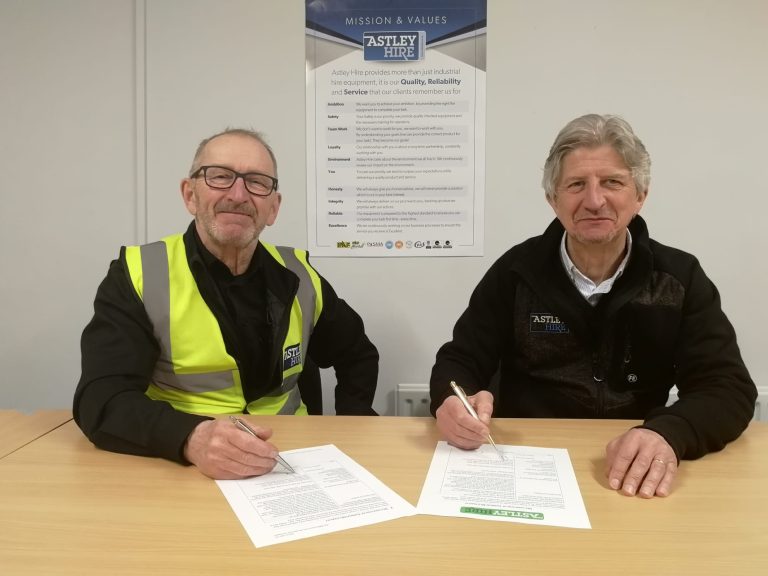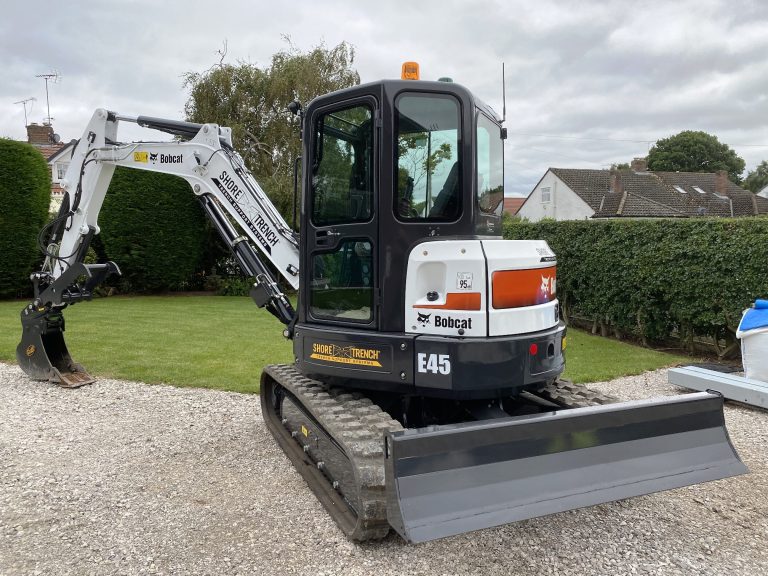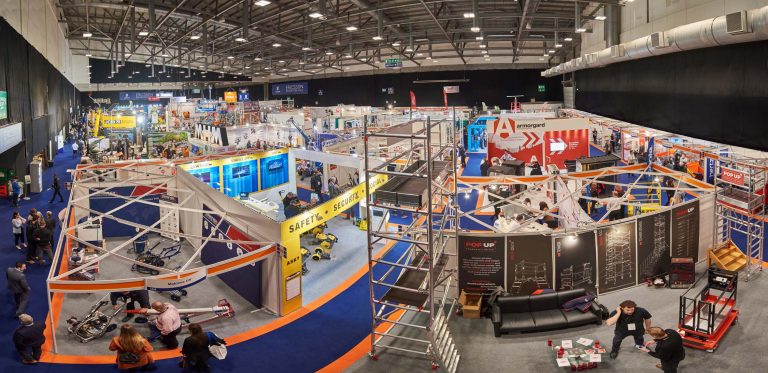After a two-year break from exhibitions due to COVID-19, SMT GB is excited to showcase a wide range of the latest Volvo machines and service solutions at Hillhead 2022. On the SMT GB stand, visitors will have the opportunity to see a host of new Volvo excavators, displayed for the first time in Great Britain. These include the EWR130E wheeled excavator, the EW200E material handler, EC530E excavator and EC300E Hybrid excavator. The multipurpose Volvo EWR130E wheeled excavator sets a new standard for powerful machine performance in an unbeatably compact package. Ideally suited for working in tight urban spaces, its wheeled drive means it can quickly move through infrastructure projects with ease. Designed especially for waste and recycling, the all-new Volvo EW200E material handler is built on the success of the larger EW240E MH and delivers outstanding results in waste and recycling applications. The Volvo EC530E crawler excavator, launched along with the EC550E in 2020, will also be shown on the SMT GB stand. Designed for heavy-duty digging, mass excavation and large site preparation, both the EC350E and EC550E boast superb operator comfort and a new generation of electro-hydraulics. Another star of the show will be the new Volvo EC300E Hybrid crawler excavator. This machine delivers the same levels of controllability and performance as an equivalent conventional machine, but with an up to 17% potential fuel efficiency improvement, making it the environmentally respectful choice for powerful performance in built-up areas. Due to be shown for the first time at Hillhead in 2020, the Volvo EC950F crawler excavator will be working in the demonstration area directly behind the SMT GB stand. The 95 tonne EC950F is the largest Volvo excavator to date and delivers maximum productivity in heavy rock or muck shifting applications thanks to its perfect combination of power, stability and breakout force. New Volvo electric compact range A specially designed “electric village” will also be featured on the SMT GB stand, which will offer Hillhead visitors their first opportunity to see the newly expanded range of fully electric compact machines from Volvo Construction Equipment. This includes the new Volvo EC18 Electric and ECR18 Electric compact excavators and the Volvo L20 Electric compact wheeled loader. The Volvo ECR25 Electric compact excavator, which was displayed for the first time at Bauma in 2019, will also be shown on the SMT GB stand. Visitors will be able see the new electric machines working in mock real-world applications during daily demo shows on the stand at 10:00, 12:00 and 14:00. Efficiency and productivity boosting solutions In addition, SMT GB will be showcasing its latest service solutions in the categories of “Efficient Sites”, “Intelligent Data” and “Flexible Maintenance and Repair”. Not only do these solutions boast the latest technologies to help boost site, project and machine efficiency and productivity, but also reduce downtime, waste and total cost of ownership for customers. The “Efficient Sites” solutions being showcased are Volvo Co-Pilot, Volvo EcoOperator training, state-of-the-art simulators and SMT Site Simulation. Having a reliable and efficient fleet of machines plays an important part in every project, but it is the performance of the operator and the efficiency boosting technology available to them that really makes the difference. This is where Volvo Co-Pilot and EcoOperator training delivered by SMT GB makes a real difference. Volvo Co-Pilot with Haul Assist provides articulated hauler operators with real-time information via a touchscreen display in the cab to improve their productivity, efficiency and safety. Using a state-of-the-art cab mounted touchscreen, Volvo Co-Pilot provides the operator with all the information they need to complete projects in less time and with more precision. Through the specially designed advanced training course provided by SMT GB, Volvo EcoOperator training teaches operators how to get the most out of their Volvo machines, while also reducing fuel consumption, emissions and wear. This is made possible thanks to the cutting-edge SMT GB machine simulators, providing operators with the ability to get hands-on with a highly accurate digital version of their machines, along with real-world feedback in a safe classroom environment to hone their skills and identify areas for improvement. The newly developed SMT GB Site Simulation solution, meanwhile, uses advanced drone technology to generate highly accurate 3D models of any site it is deployed on. This provides customers with the ability to accurately determine the current condition of a site, suggest optimal machine pairings and identify what changes will improve on-site productivity and efficiency. Actionable data at customers’ fingertips The solutions being showcased for the “Intelligent Data” area include CareTrack, ProCare, Insight Reports and MySMT. CareTrack provides customers with the ability to monitor and analyse a broad range of data on a fleet-wide basis, while SMT ProCare goes one step further to offer real-time performance data on individual machines within a fleet. Insight Reports combine the information from both CareTrack and ProCare to generate reports on fleet performance that are easy to understand and analyse. MySMT provides customers with a web browser-based portal to provide easy access to all of SMT’s intelligent data solutions, order parts and book servicing or repairs from anywhere. Maintenance made easy Lastly, the “Flexible Maintenance and Repair” solutions area will showcase the benefits of SMT GB Customer Support Agreements, as well as Volvo certified rebuilds, used parts and equipment, and the online parts portal. Recently overhauled to introduce two new levels of cover, SMT GB Customer Support Agreements provide a set of service packages to provide comprehensive machine cover and suit all customer budgets, offering customers considerable peace of mind to protect the investment made in their machinery. Thanks to the quality of refurbishment available from SMT GB’s Volvo certified rebuild programme, purchasing from new is no longer necessarily the best option available to customers. Similarly, SMT GB’s expert used equipment and parts teams provide a highly credible and cost-effective alternative to purchasing new parts and equipment. The SMT GB online parts portal provides customers with the ability to search for and order parts from anywhere 24/7 and receive free standard shipping for




